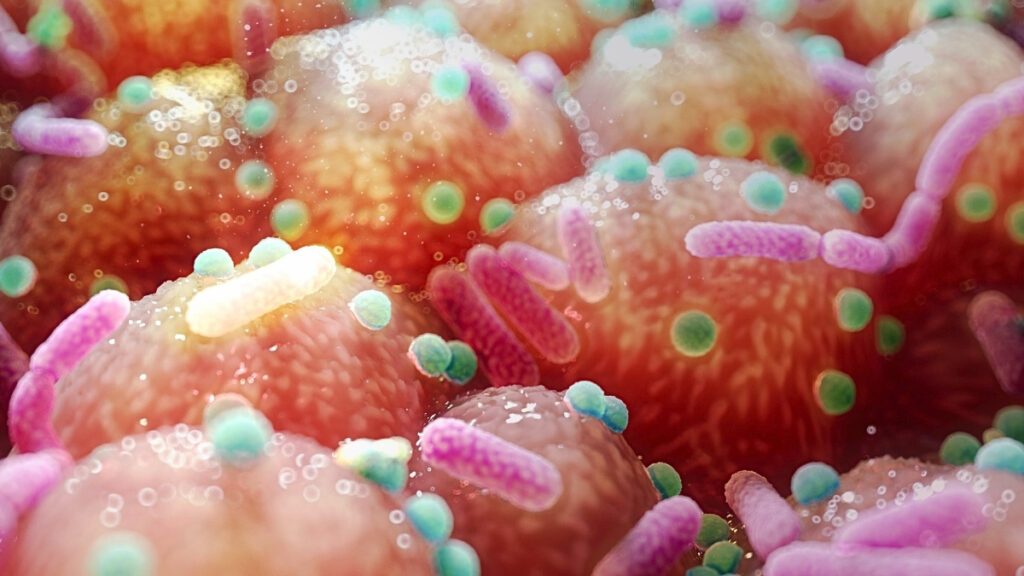
A recent study suggests a significant connection between gut bacteria and the onset of Parkinson’s disease, indicating that B vitamin supplementation could serve as a straightforward treatment option. Conducted by researchers at Nagoya University in Japan, the study highlights how gut microbes may play a crucial role in the disease’s progression by affecting levels of riboflavin (vitamin B2) and biotin (vitamin B7).
Hiroshi Nishiwaki, a leading researcher, stated, “Supplementation therapy targeting riboflavin and biotin holds promise as a potential therapeutic avenue for alleviating Parkinson’s symptoms and slowing disease progression.” This research, published in May 2024, may change the landscape for the estimated 10 million people worldwide living with Parkinson’s disease, who currently rely on therapies that primarily aim to manage symptoms.
Symptoms of Parkinson’s typically begin with gastrointestinal issues like constipation and sleep disturbances, often manifesting up to 20 years before more severe symptoms such as dementia and motor control loss develop. The study’s findings could pave the way for new approaches to treatment.
Link Between Gut Microbiome and Disease
Prior investigations indicated that individuals with Parkinson’s often experience significant changes in their gut microbiome long before neurological symptoms arise. By analyzing fecal samples from 94 patients with Parkinson’s and 73 healthy controls across multiple countries, including Japan, China, Taiwan, Germany, and the United States, Nishiwaki and his team identified specific bacteria that correlate with decreased levels of essential B vitamins.
Their research revealed that alterations in gut bacteria were associated with reduced riboflavin and biotin levels in Parkinson’s patients. The team also discovered that a deficiency in these vitamins contributed to lower concentrations of short-chain fatty acids (SCFAs) and polyamines, which are crucial for maintaining a healthy intestinal mucus layer. “Deficiencies in polyamines and SCFAs could lead to thinning of the intestinal mucus layer, increasing intestinal permeability, both of which have been observed in Parkinson’s disease,” Nishiwaki explained.
This compromised barrier may expose the intestinal nervous system to various environmental toxins, such as cleaning chemicals, pesticides, and herbicides. These toxins can lead to an overproduction of α-synuclein fibrils, which accumulate in dopamine-producing cells in the brain, resulting in the debilitating symptoms associated with Parkinson’s disease.
Potential for B Vitamin Supplementation
Previous research from 2003 indicated that high doses of riboflavin could aid motor function recovery in patients who also eliminated red meat from their diets. The current findings suggest that B vitamin supplementation might prevent some of the damage associated with Parkinson’s disease progression. Nishiwaki and his team propose that enhancing gut health could provide additional protective benefits, along with reducing environmental toxins.
The composition of the gut microbiome is dynamic and influenced by various factors, including diet, age, and sleep quality. Recent studies have shown that different gut bacteria can process high-fiber foods more efficiently, affecting overall health. Furthermore, research from 2025 revealed that certain gut microbes could absorb and store persistent environmental pollutants known as PFAS, commonly referred to as “forever chemicals.”
While the gut microbiome significantly impacts health, it is crucial to recognize that Parkinson’s disease is a multifaceted condition. The researchers suggest that personalized assessments, including gut microbiota and fecal metabolite analyses, could lead to tailored treatments. “Using these findings, we could identify individuals with specific deficiencies and administer oral riboflavin and biotin supplements to those with decreased levels, potentially creating an effective treatment,” Nishiwaki concluded.
This groundbreaking research, published in npj Parkinson’s Disease, opens new avenues for understanding and potentially treating a complex and challenging disease, emphasizing the importance of gut health in neurological conditions.





